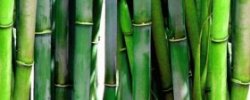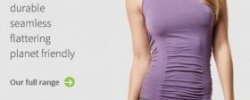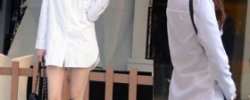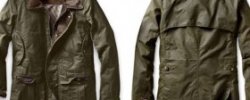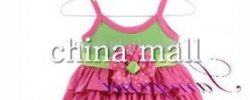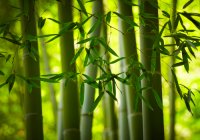 While clothing promoted as organic bamboo textile tend to be gaining popularity worldwide, it turns out no organic bamboo textiles have actually been certified. Behind the apparent fraud may be the Chinese business monster Tenbro.
While clothing promoted as organic bamboo textile tend to be gaining popularity worldwide, it turns out no organic bamboo textiles have actually been certified. Behind the apparent fraud may be the Chinese business monster Tenbro.
The actual quantity of “organic” bamboo material Tenbro exports yearly is 20 times higher than the amount of American-produced natural cotton shipped annually. The international Organic Textile traditional (GOTS) general public database, the key authority on official certification, cannot consist of any “organic bamboo.”
In Europe and Japan, product sales of the non-existent product are on the increase, and natural bamboo bags and garments tend to be promoted once the “new organic cotton.” Organic bamboo fabrics are offered as environmentally friendly, normal, anti-bacterial, and breathable.
Shanghai Tenbro Bamboo Textile Co., Ltd. together with associated Jiago Chemical Fiber Co, Ltd. actually exported 216, 000 a great deal of fabric with a false internationally approved natural certification. The organization’s information associated with the textile reads: “Trendy Bamboo fibre products. Nature, Natural, Elegant.”
The organization ended up being reported for seal abuse, having used old versions of certification seals on its web site without actually becoming certified, Lebi Perez, Inspection and Training Coordinator within natural Crop Improvement Association (OCIA) told Epoch Times via e-mail. OCIA certificates comply with the Global Federation of natural Agriculture motion (IFOAM) directions and tend to be supported all over the world.
Viscose Rayon
The silky product known as organic bamboo is viscose rayon made from bamboo fibers. Actually, what Europeans and Japanese are buying is viscose rayon made from bamboo fibers. Really organic bamboo textile will be coarse, without having the smooth texture of rayon.
Rayon is certainly not an eco-friendly alternative to cotton fiber textiles, since it takes virtually twice the power to make in comparison to cotton-based fabrics. The entire process of making rayon also involves many chemical compounds and it gets rid of some normal advantages of bamboo, such as for instance it’s anti-bacterial effect.
The most common solvent found in viscose rayon manufacturing is carbon disulfide, which will be very toxic and a dispersant (50 percent associated with compound is released into the air when utilized in production). A newer form of rayon, Lyocell, dissolves plant materials using the somewhat less harmful amine oxide. But Lyocell varies according to nanotechnology for fibre shaping, which can be a technique not completely grasped for the effect on person health, according to the All-natural sources Defense Council.
In the United States and Canada it is unlawful to promote rayon created from bamboo pulp as “bamboo.” It must be labeled “rayon” or “rayon produced from bamboo.” The U.S. Federal Trade Commission (FTC) has actually cautioned the general public about chemically-made rayon marketed as natural bamboo fabrics and sued a few significant retailers for misleading customers.
Is Tenbro truly the only company achieving this? Tenbro holds a vague patent in Asia on bamboo rayon. It will “sue any illegal overseas buyer of bamboo fibre services and products … accredited because of the State Intellectual Property Bureau, ” according to their site. They will certainly “take appropriate actions to those suppliers with fraud intellectual properties or pirating our intellectual properties.” It is really not entirely clear what this implies or just what appropriate statements Tenbro tends to make.
The Organic Bamboo Textile Dream
You'll be able to grow bamboo in a natural method, even if the natural condition of fabrics is cast in doubt. Since 2012, a certain natural bamboo grove standard has been around place. If a grove is on clean soil, makes use of uncontaminated water, adds no pesticides or chemical fertilizers, and will not grow bamboo in a monoculture, it can be competent as “organic bamboo.”




